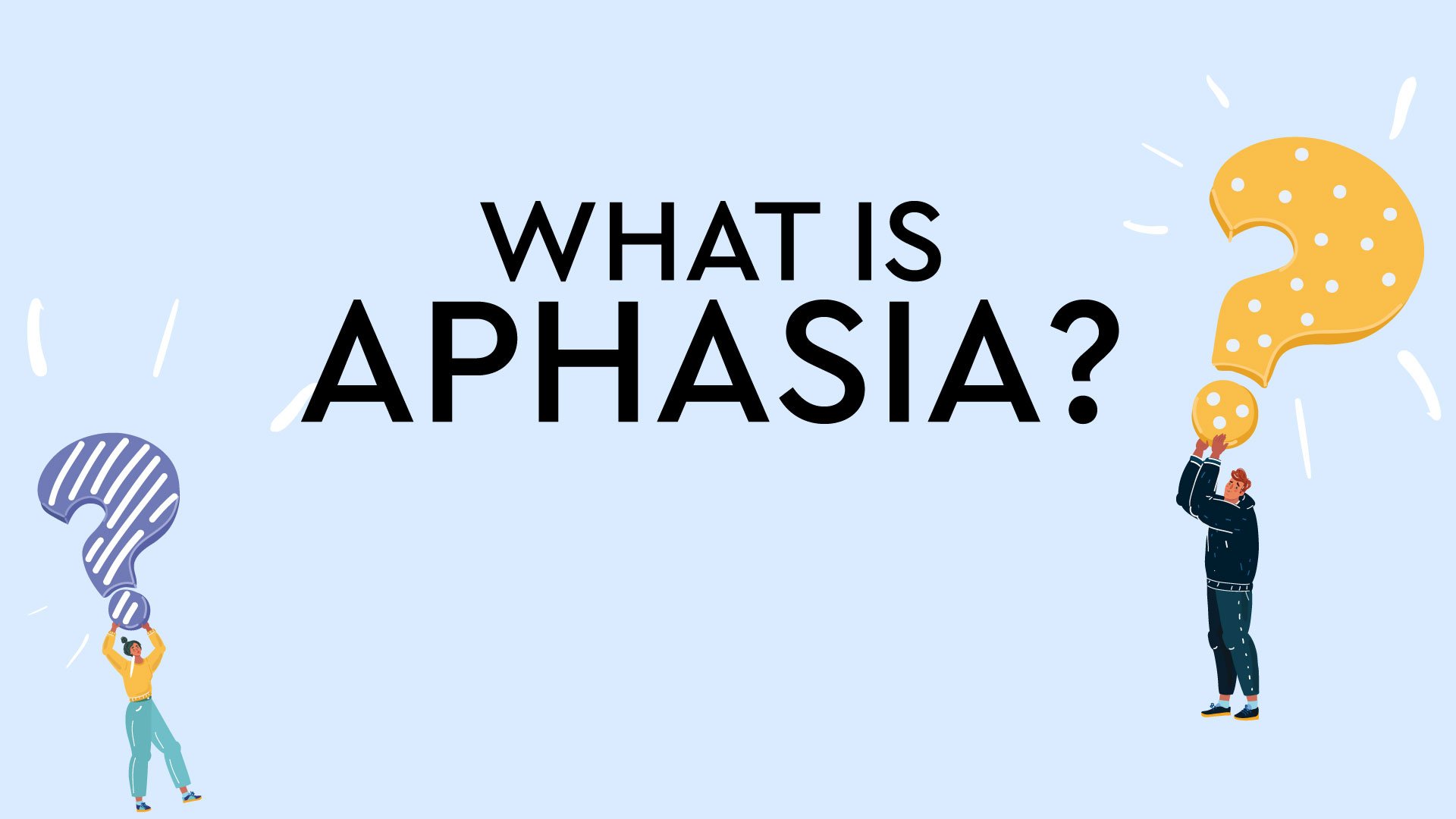
What is aphasia?
Aphasia is the partial or total loss of the capacity to speak and/or understand language. A person with aphasia is aware of what they want to say but cannot find the sounds, words and correct sentences to do so.
Aphasia is the partial or total loss of the capacity to speak and/or understand language. A person with aphasia is aware of what they want to say but cannot find the sounds, words and correct sentences to do so.
What causes aphasia?
Aphasia is a language difficulty that appears as a result of brain damage. In other words, when the brain is damaged due to a cerebral vascular accident (for example stroke), head trauma (for example hitting one’s head during a car accident), epilepsy, a brain tumor or any other cause.
Aphasia is a language difficulty that appears as a result of brain damage. In other words, when the brain is damaged due to a cerebral vascular accident (for example stroke), head trauma (for example hitting one’s head during a car accident), epilepsy, a brain tumor or any other cause.
What do we notice in a person with aphasia?
Before explaining how people with aphasia speak or understand speech and language, it is crucial to understand that not all people with aphasia possess the same capacities. Some can understand all that they are told but cannot find the right words to express themselves. Others can speak easily but may require a lot of help in order to understand what they are being told!
When people with aphasia do not understand what they are told, we may be under the impression that they speak correctly. However, we must be aware that even though their sentences may be correct, they would not be adapted to the context:
When a person with aphasia speaks several languages, they generally become aphasic in all those languages. In fact, they will usually have difficulties in all those languages. These difficulties tend to vary in severity.
Finally, aphasia does not only mean that a person has difficulties in expressive language. In some cases, the aphasic will find themselves unable to read texts that they used to read easily. Also, they no longer can write simple and frequent words such as their own name.
Can a person with aphasia regain their capacity to speak, understand, read and write?
The answer to this question is not general nor is it applicable to all aphasic patients. Each person with aphasia has different and unique capacities and difficulties. That is the reason why early speech therapy is primordial in patients with aphasia. The therapists will test their language skills in order to recognize their strengths and weaknesses. That being said, the speech therapist will essentially suggest certain activities that will help improve their difficulties. Each activity is specific given that, as we have mentioned above, each symptom is different!
Nevertheless, the role of the speech therapist is to answer all your questions, to help you better communicate with the aphasic person, and, especially, to help that person compensate their difficulties by providing some tips and tricks; for example, using pictures and images to articulate what they want to say before being able to express themselves correctly.
Before explaining how people with aphasia speak or understand speech and language, it is crucial to understand that not all people with aphasia possess the same capacities. Some can understand all that they are told but cannot find the right words to express themselves. Others can speak easily but may require a lot of help in order to understand what they are being told!
- Some people with aphasia cannot speak even a word. They cannot pronounce their name or recite the days of the week. Whenever they try to speak, no words come out. This is what we call mutism.
- Some people with aphasia are able to formulate sentences in order to express themselves but seem somewhat hesitant. They seem to have the word at the tip of their tongue. They search for the words but cannot find them. Therefore, they sometimes try to make themselves understood by other means. For instance, they may point to what they want or make certain gestures or even utilize certain sentences (saying “that place where we live” instead of “home”).
- Certain people with aphasia are able to find their words. However, when they speak, they may replace certain letters with others (“bye” instead of “pie”), mix up the syllables (“tevilesion” instead of “television”), or misuse certain words (“chair” instead of “table”).
- Certain people with aphasia cannot form correct sentences. They may misuse pronouns or verb tense(s). For instance, they may say sentences such as “he falls on the ground” instead of “she fell on the ground”.
When people with aphasia do not understand what they are told, we may be under the impression that they speak correctly. However, we must be aware that even though their sentences may be correct, they would not be adapted to the context:
- They repeat whatever they hear. They can be told “Good morning? How are you? Are you well?” and instead of answering “Yes, I am well”, they will simply repeat “Good morning? How are you? Are you well?”
- They talk too much, without stopping. They seem to go from one idea to the other, to jump from one subject to another. Sometimes, we notice that they have created new meaningless words.
- They do not understand short and simple sentences, especially when the topic of conversation is related to things they cannot see. For example, if they are being told about what happened two days ago to the neighbors’ daughter who is abroad, they will not quite understand. If they are asked about what they were doing or what they would like to eat for dinner, they will not truly understand.
When a person with aphasia speaks several languages, they generally become aphasic in all those languages. In fact, they will usually have difficulties in all those languages. These difficulties tend to vary in severity.
Finally, aphasia does not only mean that a person has difficulties in expressive language. In some cases, the aphasic will find themselves unable to read texts that they used to read easily. Also, they no longer can write simple and frequent words such as their own name.
Can a person with aphasia regain their capacity to speak, understand, read and write?
The answer to this question is not general nor is it applicable to all aphasic patients. Each person with aphasia has different and unique capacities and difficulties. That is the reason why early speech therapy is primordial in patients with aphasia. The therapists will test their language skills in order to recognize their strengths and weaknesses. That being said, the speech therapist will essentially suggest certain activities that will help improve their difficulties. Each activity is specific given that, as we have mentioned above, each symptom is different!
Nevertheless, the role of the speech therapist is to answer all your questions, to help you better communicate with the aphasic person, and, especially, to help that person compensate their difficulties by providing some tips and tricks; for example, using pictures and images to articulate what they want to say before being able to express themselves correctly.


